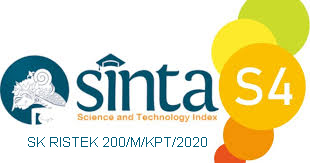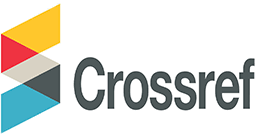Improving Biology Learning Through Augmented Reality Technology in Indonesia: A Review
Abstract
Keywords
Full Text:
PDFReferences
Arshad, B., N.A. Ishak, and R. Zaharudin, Future Driven: Innovative Biology Teaching Through Augmented Reality Technology for Better Quality Education: A Concept Paper. Global Journal of Educational Research and Management, 2023. 3 (4): pp. 18-25.
Arslan, R., M. Kofoğlu, and C. Dargut, Development of augmented reality application for biology education. Journal of Turkish Science Education, 2020. 17 (1): pp. 62-72.
Erbas, C. and V. Demirer, The effects of augmented reality on students' academic achievement and motivation in a biology course. Journal of Computer Assisted Learning, 2019. 35 (3): pp. 450-458.
Wang, X.-M., et al., Learning with digital technology-facilitated empathy: An augmented reality approach to enhancing students’ flow experience, motivation, and achievement in a biology program. Interactive Learning Environments, 2023. 31 (10): pp. 6988-7004.
Zamzami, Z., S. Sakdiah, and N. Nurbaiza, Analisis Faktor Kesulitan Belajar Mata Pelajaran Biologi Siswa Kelas X SMA NEGERI 1 Krueng Barona Jaya Kabupaten Aceh Besar. Jurnal Dedikasi Pendidikan, 2020. 4 (1): pp. 123-133.
Farahani, N., et al., Faktor Kesulitan Belajar Siswa Pada Mata Pelajaran Biologi SMA. Jurnal Edukasi Biologi, 2023. 9 (2): pp. 175-183.
Ulfa, N.A., H. Hidayatussakinah, and R. Prabawati, Analisis Kesulitan Belajar Siswa pada Pembelajaran Biologi di SMA Muhammadiyah Aimas Kabupaten Sorong. Biolearning journal, 2023. 10 (1): pp. 36-40.
Indrawan, I.P.O., I. Wiryanti, and K. Sudarsini, Exploration of Biology Learning Experiences Among Students of SMAN 3 Singaraja: A Review of Offline and Online Learning. International Journal of Instructions and Language Studies, 2023. 1 (2): pp. 1-10.
Mardiyah, F.H., A. Widodo, and D. Rochintaniawati, Penggunaan aplikasi augmented reality untuk memfasilitasi penguasaan konsep peserta didik tentang siklus hidup tumbuhan dan keterampilan berpikir kreatif. Assimilation: Indonesian Journal of Biology Education, 2020. 3 (2): pp. 55-62.
Prokop, P., M. Prokop, and S.D. Tunnicliffe, Is biology boring? Student attitudes toward biology. Journal of biological education, 2007. 42 (1): pp. 36-39.
Janin, A.L., D.W. Mizell, and T.P. Caudell. Calibration of head-mounted displays for augmented reality applications. in Proceedings of ieee virtual reality annual international symposium. 1993. IEEE.
Chen, Y., et al. An overview of augmented reality technology. in Journal of Physics: Conference Series. 2019. IOP Publishing.
Södervik, I., et al., Fostering performance in hands-on laboratory work with the use of mobile augmented reality (AR) glasses. Education Sciences, 2021. 11 (12): pp. 816-830.
Duarte, M., et al., Learning anatomy by virtual reality and augmented reality. A scope review. Morphologie, 2020. 104 (347): pp. 254-266.
Gurevych, R., et al., Using augmented reality technology in higher education institutions. Postmodern Openings, 2021. 12 (2): pp. 109-132.
Zed, M., Metode Penelitian Kepustakaan. 2004, Jakarta: Yayasan Pustaka Obor Indonesia.
Miles, M.B., A.M. Huberman, and J. Saldana, Qualitative Data Analysis: A Methods Sourcebook. 4th ed. 2018, Los Angeles: SAGE Publication.
Destiara, M., The Practicality of Teaching Material Biology of Islamic-Science based on Augmented Reality. BIO-INOVED J. Biol. Pendidik, 2020. 2 (2): pp. 117-122.
Maelani, Y., A.S.Y. Irawan, and A. Suharso, Teknologi Augmented Reality Sebagai Media Pembelajaran Dalam Pengenalan Buah-Buahan (Kasus Paud Hidayatul Burhan). J-SAKTI (Jurnal Sains Komputer dan Informatika), 2021. 5 (2): pp. 911-924.
Febrita, R.E., A.A. Ratri, and I.N. Ratri. Pengembangan Media Pembelajaran Sistem Reproduksi Berbasis Augmented Reality bagi Anak Berkebutuhan Khusus. in Prosiding Seminar Nasional Terapan Riset Inovatif (SENTRINOV). 2022.
Lismaya, L., A. Priyanto, and P. Ayu, Application of Augmented Reality Through a Scientific Approach to Students' Critical Thinking Ability. Indonesian Journal of Learning and Instruction, 2022. 5 (1): pp. 31-40.
Ningrum, K.D., et al., Media Komik Elektronik Terintegrasi Augmented Reality dalam Pembelajaran Sistem Peredaran Darah Manusia di Sekolah Dasar. Jurnal Basicedu, 2022. 6 (1): pp. 1297-1310.
Rahmawati, A., G. Gunahardi, and M. Muchtaron, Augmented Reality for Teaching Cell Materials in Biology for Undergraduate Students. DWIJA CENDEKIA: Jurnal Riset Pedagogik, 2022. 6 (3): pp. 475-481.
Arianto, I.W., A. Hidayati, and A. Pratama, Pengembangan Aplikasi Augmented Reality Berbasis Android Materi Sistem Indra Pendengaran Pada Manusia. Juwara Jurnal Wawasan dan Aksara, 2023. 3 (2): pp. 134-143
.
Samsiyanawati, U., D.R. Ikebayu, and M.D. Wijayanti. The Influence of Augmented Reality (AR) Based Learning Media on Elementary School Students' Learning Interest in Human Digestive System Material. in Social, Humanities, and Educational Studies (SHES): Conference Series. 2023. Kebumen.
Sangi, S.S. and J. Bata, Pengembangan Media Pembelajaran Berbasis Augmented Reality pada Materi Sistem Peredaran Darah Kelas V Sekolah Dasar. Pendas: Jurnal Ilmiah Pendidikan Dasar, 2023. 8 (3): pp. 2983-2994.
Tamam, B. and N. Qomaria, Implementation of Augmented Reality In Biology Learning: Its Effect on Learning Motivation and Retention. Journal of Education Research and Evaluation, 2023. 7 (1): pp. 17-22.
Pranahadi, T.Y., I. Yani, and H. Nefosano, The Use Of Augmented Reality (AR) Media To Enhance Student Motivation Learning. Jurnal BIOEDUIN, 2024. 14 (1): pp. 30-37.
DOI: https://doi.org/10.31326/jisa.v7i1.2029
Refbacks
- There are currently no refbacks.
Copyright (c) 2024 Syarifah Hallaby, Ade Syahputra

This work is licensed under a Creative Commons Attribution-ShareAlike 4.0 International License.
JOURNAL IDENTITY
Journal Name: JISA (Jurnal Informatika dan Sains)
e-ISSN: 2614-8404, p-ISSN: 2776-3234
Publisher: Program Studi Teknik Informatika Universitas Trilogi
Publication Schedule: June and December
Language: English
APC: The Journal Charges Fees for Publishing
Indexing: EBSCO , DOAJ, Google Scholar, Arsip Relawan Jurnal Indonesia, Directory of Research Journals Indexing, Index Copernicus International, PKP Index, Science and Technology Index (SINTA, S4) , Garuda Index
OAI address: http://trilogi.ac.id/journal/ks/index.php/JISA/oai
Contact: jisa@trilogi.ac.id
Sponsored by: DOI – Digital Object Identifier Crossref, Universitas Trilogi
In Collaboration With: Indonesian Artificial Intelligent Ecosystem(IAIE), Relawan Jurnal Indonesia, Jurnal Teknologi dan Sistem Komputer (JTSiskom)
JISA (Jurnal Informatika dan Sains) is Published by Program Studi Teknik Informatika, Universitas Trilogi under Creative Commons Attribution-ShareAlike 4.0 International License.


















